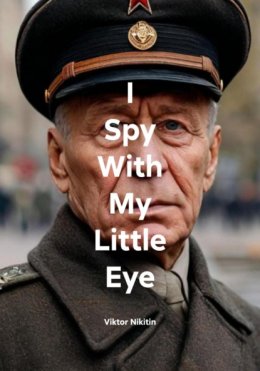I Spy With My Little Eye

I Spy With My Little Eye
This story is about the events of the distant year 1975, which echo modern times. The key figure is Dmitry Fedorovich Polyakov (1921-1988). Participant of the Great Patriotic War. Officer of the Main Intelligence Directorate (GRU) of the General Staff of the USSR Armed Forces. In the 1950s, he served undercover in the United States in various positions at the UN. On his own initiative, he contacted the FBI and started passing on information to them about the activities of the GRU in the United States and other Western countries. Over 25 years of work for the FBI and CIA, he betrayed dozens of deep-cover intelligence officers, hundreds of Soviet agents from among the recruited foreign citizens, and revealed the affiliation of over one and a half thousand active intelligence officers with the GRU and the KGB. In 1974, he received the rank of major general. He was exposed in 1986 and executed in 1988. The evil he caused to his country and his fellow intelligence officers is enormous and unjustified. However, some TV series and publications portray Polyakov as almost a martyr and fighter against the Soviet regime. The FBI and CIA gave their spy many nicknames – Bourbon, Tophat, Donald, Specter, but the most suitable name for him would be Sly Fox. Unfortunately, during those years, besides D. Polyakov, there were quite a few traitors in the ranks of the GRU: P. Popov, N. Chernov, A. Filatov, V. Rezun , G. Smetanin , V. Baranov, A. Volkov, G. Sporyshev, V. Tkachenko and, of course, O. Penkovsky. Many books and articles have been written about them, but I hope that my story about Dmitry Polyakov will not be a waste of time.
* * *
On January 15, 1975, my leader, Captain 2nd Rank Kotov, and I were sent to India by the 10th Main Directorate of the General Staff of the USSR Armed Forces for talks at the General Staff of the Indian Navy in Delhi and at the base the Indian Navy in the city of Visakhapatnam, Andhra Pradesh. The flight, hotel accommodation and rest until the next morning – everything was top notch. At the USSR embassy in New Delhi, I met Soviet military attaché, General D. F. Polyakov, and gave him a package from his son, my fellow-student Petya Polyakov. General Polyakov was a strong man, above average height, calm and restraint. The seemingly good-natured Major General invited me to his place so that over a cup of tea he could ask me about my studies, about his son and about the events in Moscow. At his villa, I met Petya's mother, who served tea, treated me to sweets and filled my pocket with chewing gum for the road. I was grateful to Petya's parents, and General Polyakov said that on my way back to Moscow he was expecting me to see him again. Then I remembered that I had to pick up a package from general Polyakov and take it to his son. On the eve of my departure to Moscow, General Polyakov took me to the Connaught Place shopping center to the bookstore there and asked what I liked to read. At that time I was fascinated by India and was trying to learn Hindi, and Polyakov bought and gave me a self-study book on Hindi, saying "learn it, we need such kind of specialists." Moreover, that was not all. Polyakov asked if I had a fiancée. I answered affirmatively, and he bought her a bleu alexandrite silver ring as a gift from himself. Polyakov drove me to my hotel, gave me a package for my son, and we warmly said goodbye to each other. I brought the package to Moscow and gave it to Petya Polyakov.
* * *
In March 1975, I was sent on mission to the 165th training center in the village of Perevalnoye on the 21st kilometer of the highway from Simferopol to Alushta. The training center was controlled by the 10th Main Directorate of the General Staff of the USSR Armed Forces ("desyatka", military unit No. 44708). It is called now the Main Directorate of International Military Cooperation of the Ministry of Defense of the Russian Federation. There they trained militants of the so-called national liberation movements. The commander of the training center, Colonel V. I. Kalashnik , had very rude manners and methods of managing the center. After he took over as commander of the training center, many officers resigned.
* * *
Thank God, I did not have contact the commander of the training center. I had other problems. I arrived in Perevalnoye as a punishment, but no one knew for what punishment. My Institute commander, Sergei Semyenovich Boyko, sending me on mission to Perevalnoye (and this was exile according to the concepts of my fellow-students), asked me what had happened to me in India. I had no answer to this question for the next 15 years. Only in 1990 did I receive the key to further understanding the reason for my exile and the subsequent events.
